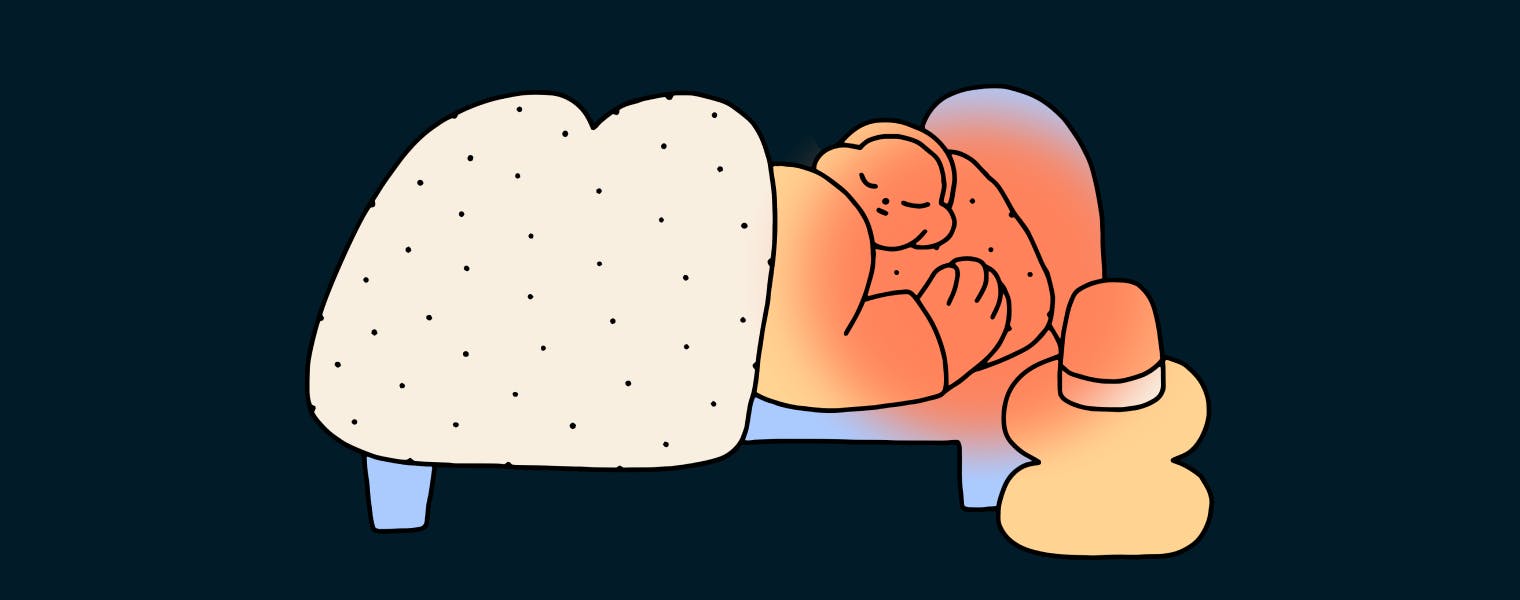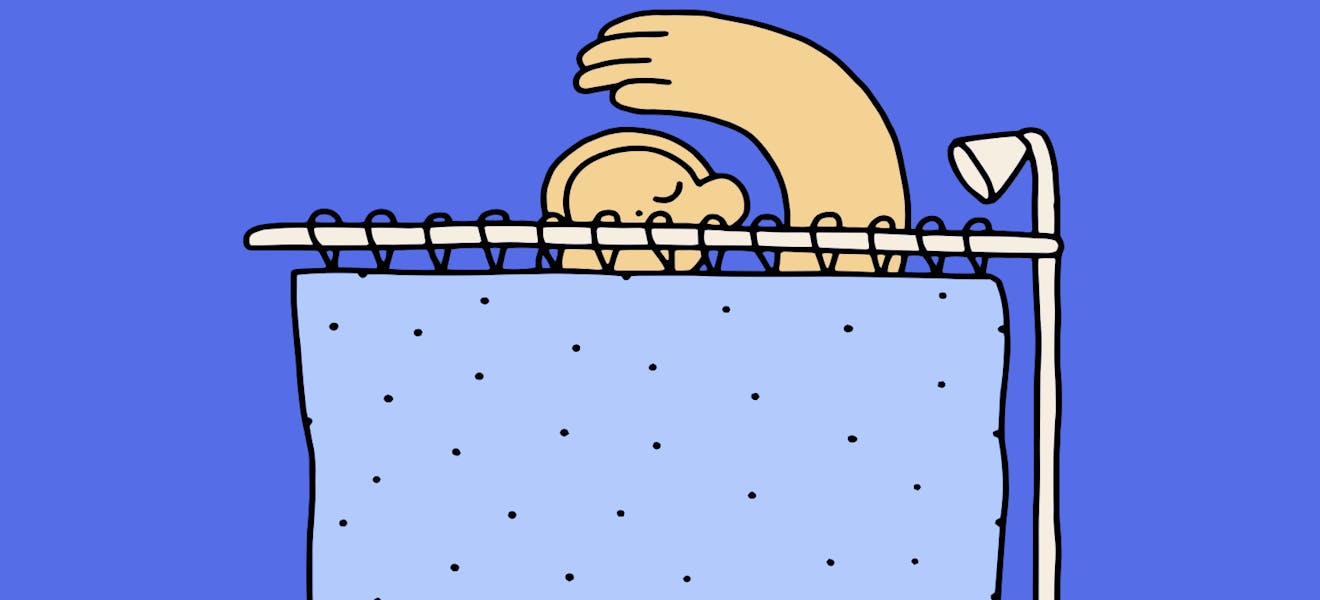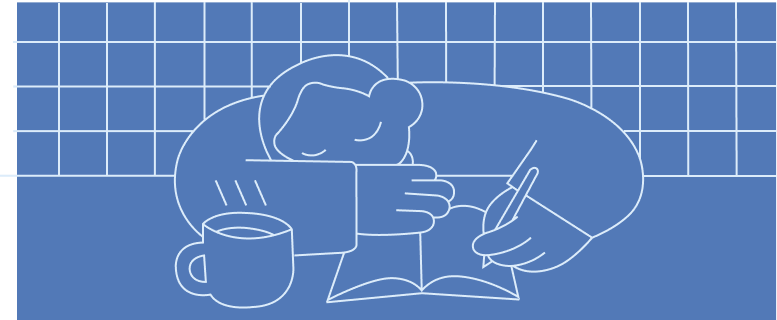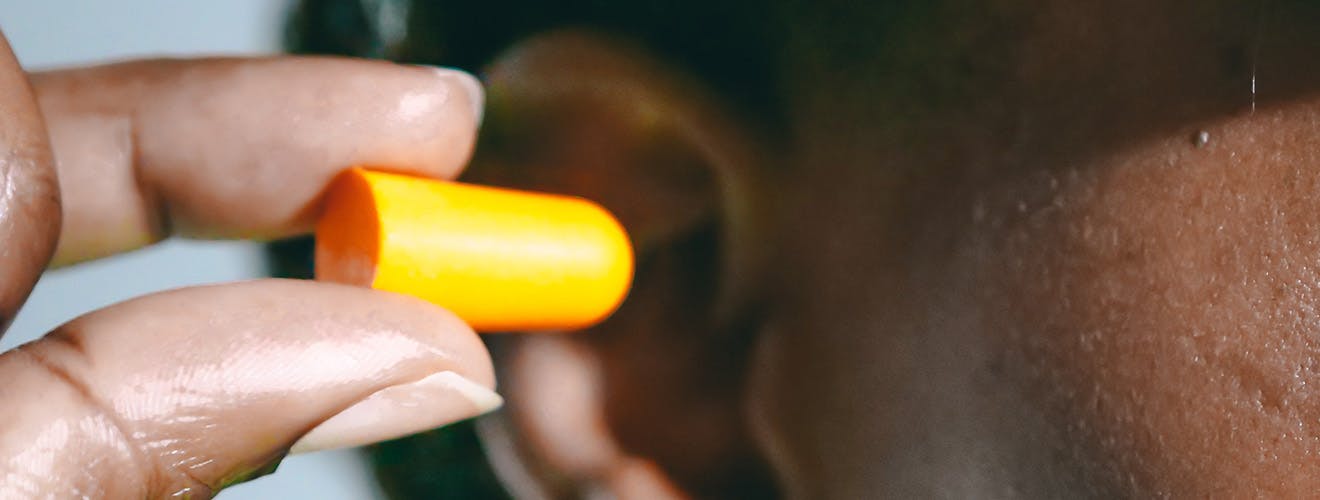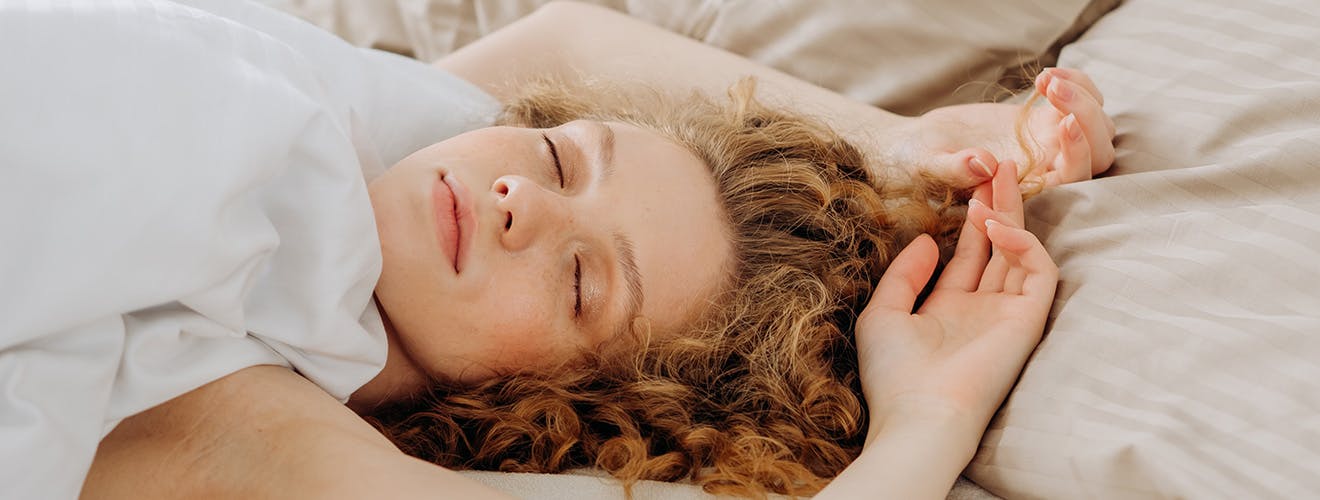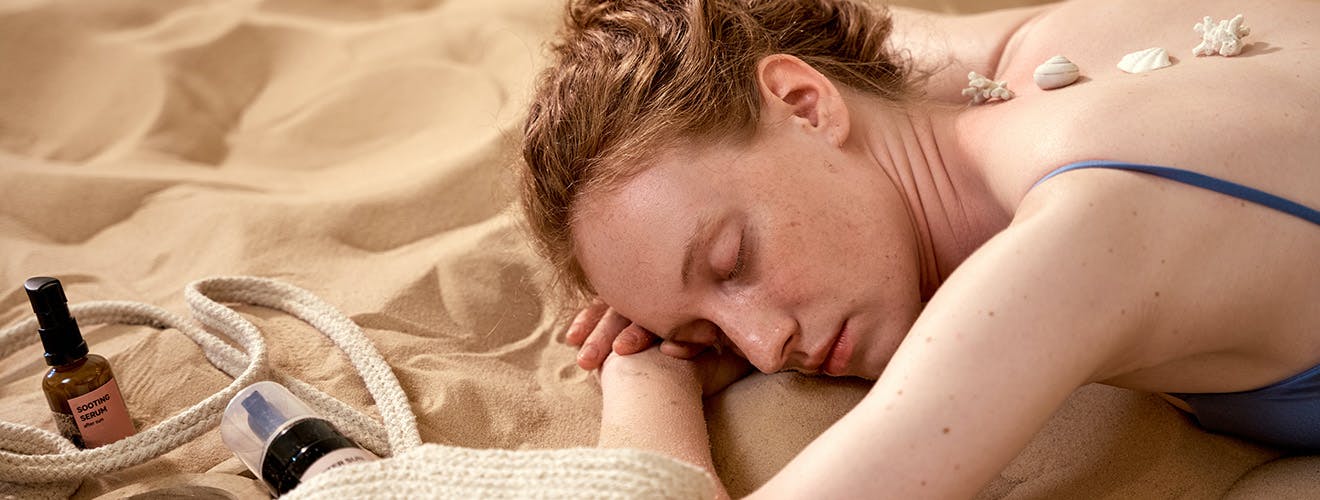Do Sleep Masks Work?
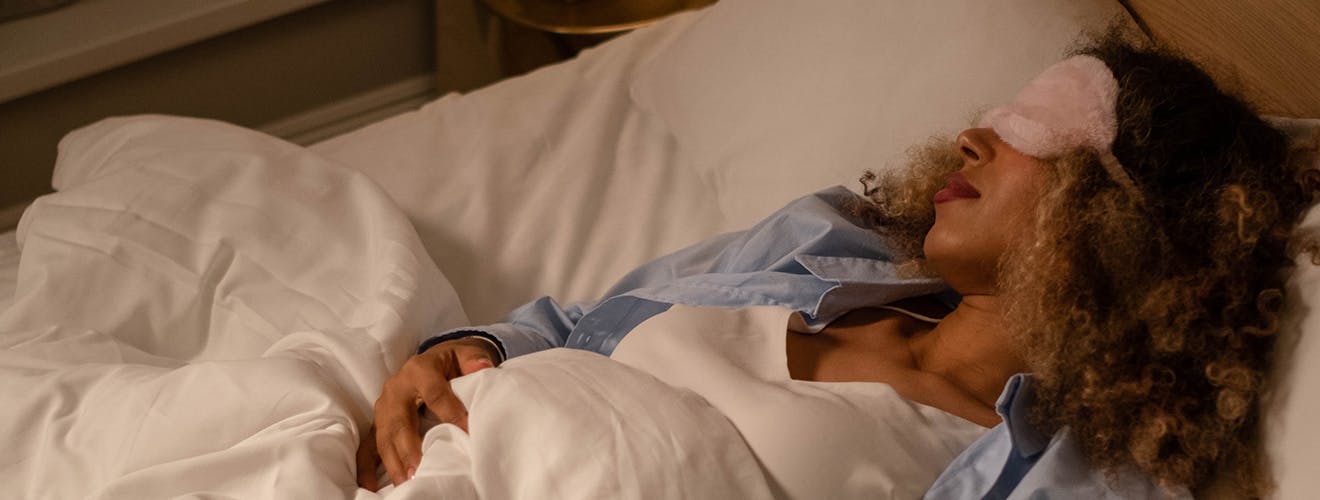
The global sleep market is slated to hit $137 billion by 2026. Among the many products targeted towards individuals with trouble falling asleep are sleep masks. Though simple and largely inexpensive, these popular accessories promise to deliver a good quality sleep. But, how legitimate is the hype? Read on to find out.
How Can Sleep Masks Improve Sleep Quality?
Sleep masks are said to improve the overall quality of your sleep by blocking out any artificial light present around you. Remember, light is an important stimulus for our brain. We all have an internal biological clock, the circadian rhythm, that regulates our sleep-wake patterns.
Nighttime is supposed to be dark, and darkness is a natural cue for us to wind down and recharge for the next day. When we are confronted with intrusive light during these late-night hours, our circadian rhythms can be disrupted, and our brain can become confused about when to go to sleep.
Our melatonin production is also affected by artificial light. Melatonin is a sleep-inducing hormone; its reduction can lead to sleeping problems and even sleep disorders such as insomnia.
Melatonin levels rise in the darkness and help you fall asleep faster and stay asleep for longer. When the darkness isn’t prevalent, our melatonin levels can be disrupted, resulting in grogginess and maybe even no sleep.
Who Should Try a Sleep Mask?
If you often lose sleep for one reason or the other, you can try incorporating a sleep mask into your sleeping routine or maybe just try it once to see if it helps you get your well-deserved shuteye.
However, people that live in a busy neighborhood that’s always awake at nighttime can especially benefit from wearing a sleep mask at night. If you do not have blackout curtains to block out the light coming in from the windows, you could rely on a sleep mask to save you from disruptions.
Any cars driving by or the streetlights can prove to be just enough of a light source to break that peaceful darkness that you need.
Sleep masks can also be an extra aid to people who have sleep troubles or even sleep disorders like insomnia. Falling asleep or staying asleep can be stressful for such individuals, and covering your bases when it comes to at least one cause of disruption can improve your sleep quality.
Night-shift workers may also find sleep masks particularly useful. These employees have no choice but to get their sleep during the daytime and blocking sunlight can prove impossible without a sleep mask.
Benefits of Sleep Masks
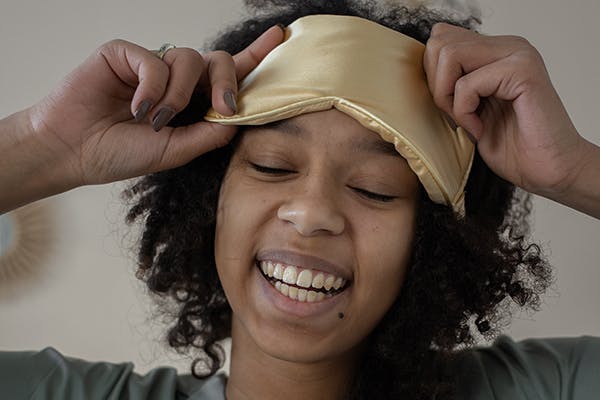
Falling Asleep Faster
As mentioned before, more melatonin is equal to more sleep, and melatonin production is increased in the dark. Melatonin binds to your brain receptors, regulating nerve activity and inducing relaxation.
So, if you try to go to sleep in a lit-up room, you’re going to have a harder time feeling sleepy and being able to snooze.
Using sleep masks can prevent any light from finding its way to your eyes and help you fall asleep quicker than you normally would when the lights around you are not controlled. Resulting in less time lost turning and tossing and more peaceful sleep.
Staying Asleep Longer
Not only can face masks help you fall asleep quicker, but they also help you stay asleep for longer. This is because the undiluted darkness increases melatonin production, which can help you stay asleep for a longer time.
More REM Sleep
Rapid eye movement (REM) sleep occurs during the latter part of the sleep cycle, every 90 minutes, and is important for restorative sleep. This phase helps in memory consolidation as well.
When our REM sleep is disturbed, we can wake up groggy and restless. Eye masks can help preserve our REM sleep by ensuring we are getting uninterrupted deep sleep and that our melatonin levels are not affected by unwanted light.
What to Look for in a Sleep Mask
Sleeping masks can be great for everyone, but this does not mean that they are a one fits all solution. To get the maximum benefit from your sleeping mask, you need to ensure that it suits your specific needs.
Shape
From dainty and sleek to the bigger and bulkier versions, sleeping masks can come in various shapes. When looking for the right-shaped mask, you need to consider your face shape. How big are your eyes? What kind of mask would fit your face well?
Some masks are flat, while others are contoured. Choosing between them can take a bit of trial and error, but you should only pick the one that feels most comfortable on your face.
Size
Along with the shape, the size of a mask also is a big deciding factor. You don’t want a mask that is so loose that it’s falling off your face or one that is too tight and blocking your blood circulation.
Masks that are too tight can give you a headache. So, your mask needs to be just tight enough to stay on your face comfortably. Masks with adjustable straps are great as they can provide you with all the flexibility and customization you need.
An ill-fitting sleep mask can also cause dry eyes. This is because the air from your nose can be pushed up towards your eyes, causing your tear film to dry out faster and resulting in dry eyes.
Material
The fabric your sleeping mask is made from can also vary depending on what you prefer. Some people have allergies or are irritated by certain fabrics; therefore, they should be wary of certain fabrics.
Cotton masks are generally soft and inexpensive. A silk sleep mask may be a bit more expensive but provides the ultimate softness with the added benefit of not hindering your skincare products.
Weight
Finally, the weight the mask puts on your eyes can determine the level of comfort it can provide to you. Light blocking is an essential element of sleep masks but does not have to be the only benefit.
Some people, especially those suffering from anxiety, can benefit a lot from having some weight put on their eyes for destressing. Just like a weighted blanket, it can provide just enough pressure to lull you into a peaceful sleep.
What to Do if a Mask Isn’t Helping
While it is true that sleeping masks can help improve sleep quality, it may not be enough to eliminate trouble sleeping. If you’re suffering from sleep apnea or sleep disorders like insomnia, you may require medical attention. That's why it is always wise to consult a sleep specialist or your doctor regarding your sleep problems.
Conclusion
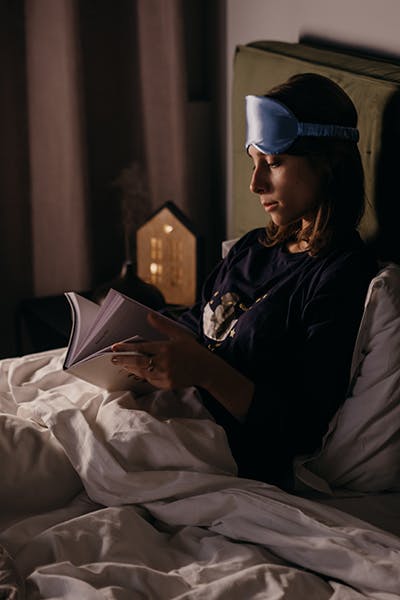
Sleep masks can improve sleep quality by helping you fall asleep quicker, stay asleep for longer times, and improve your REM sleep. That's because darkness induces more melatonin in the body. Before making a purchase, you should also consider things like its shape, size, material, and weight.
Of course, you can always pair them with other reinforcements. Sandland Sleep can help. We offer a line of sleep supplements made with naturally-derived, top-graded hemp extract, guaranteed to deliver a good night's sleep. No morning-after grogginess, just good, clean sleep.
Yes, sleep masks can help improve sleep quality and duration—especially for people who work night shifts and have to sleep during the day. Light is a waking stimulus and can affect our circadian rhythms, disrupting our sleeping patterns. Sleep masks can block out extra light, providing better conditions for sleep
Sleep masks are good to sleep with for a few reasons. Firstly, they block out any extra light that could potentially keep you from falling asleep and staying asleep peacefully. Secondly, just like weight blankets or quilts, sleep masks can provide you with a cozy feeling around your eyes that can help you destress and relax when you go to bed, resulting in overall better sleep quality.
That depends on your skin type and eye sensitivity. If you have dry eyes, wearing a sleep mask every night might not be a good idea. However, you can counter the effects of wearing a sleep mask every night by taking adequate treatment for your dry eyes and taking breaks in the use of sleep masks.
Similarly, if you have sensitive skin, wearing a sleep mask every night might irritate your face, especially your under-eye area. So, keep your face mask clean so as not to spread bacteria around.

